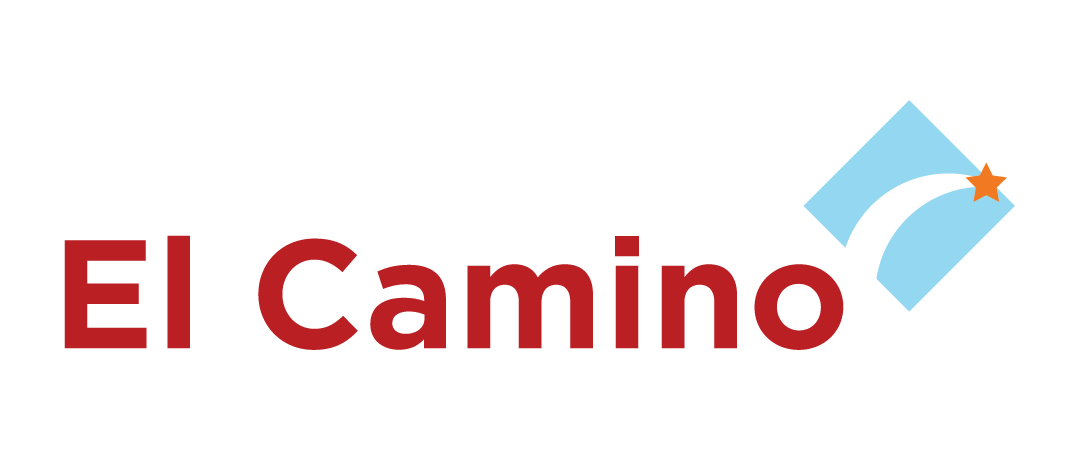
Facilitation Resources & Training
Ready to implement El Camino? We’ve got you covered with the training, resources, and any other support you need as you prepare to facilitate the curriculum.
About the Curriculum
El Camino is a sexual health promotion curriculum designed—using positive youth development principles—for Latino young people. The program consists of eleven 45-minute lessons divided into three arcs, or sections, to encourage young people to (1) set goals, (2) make informed sexual and reproductive health choices, and (3) have healthy relationships.
Participating young people are asked to set a long-term goal and then consider steps to accomplish this goal. Young people learn about contraceptive methods and about how these methods could align with their goals. They also participate in interactive activities that encourage them to identify their viewpoints and discuss why they feel the way they do, practice assertive communication, learn about consent, and identify healthy relationships.
Throughout the program, participating teens read and discuss a series of novelas (stories) about other teens in relatable situations. These activities help them think through issues around goal setting, reproductive health, and healthy relationships. El Camino’s focus on the needs and cultural norms of Latino youth and their families helps participants set academic and career goals. Throughout, the activities in El Camino strive to engage parents to obtain their support for further education and delayed family formation.
The El Camino curriculum is developmentally appropriate, active, engaging, and youth-focused. It incorporates several unique features that distinguish it from other evidence-based/evidence-informed curricula designed to prevent teen pregnancy and STIs. In particular, El Camino’s lessons and activities:
- Are anchored in sexual health promotion and goal setting;
- Incorporate a goal achievement model throughout the curriculum;
- Are designed with a focus on the needs of Latino youth; and
- Introduce contraceptive methods and empower youth to choose the method that aligns with their goals.
Learn more about El Camino with the fact sheet, El Camino: Helping Teens Set Life Goals and Promote Sexual Health, available in English and Spanish. This fact sheet describes the El Camino curriculum and preliminary results from a pilot test of the program in seven schools and community-based organizations across six cities.
Adaptation
The El Camino Adaptation Guide provides facilitators and curriculum implementers with the tools and resources to guide them in making appropriate adaptations to El Camino, an adolescent sexual health promotion curriculum, while maintaining program fidelity.
Many program facilitators adapt curricula to better serve their youth populations, and this guide will help them make adaptations in line with curriculum core components that will not jeopardize potential benefits to youth.

Virtual Adaptation
In response to the COVID-19 public health pandemic, Child Trends adapted the curriculum and training guides to allow them to be implemented virtually.
The updated curriculum incorporates call-out boxes with instructions on how to adapt each activity for a virtual setting, instructional demonstration videos that can be used in place of in-person demonstrations, and student workbook materials that have been converted into fillable PDF documents.
The curriculum also includes instructions, resources, strategies, and tips for virtual facilitation and implementation within each lesson, as well as front matter materials for facilitators.
These updates help ensure that El Camino can be implemented with high quality and fidelity in a virtual setting.
Resources for Facilitators
Looking for resources you can use now, as you prepare to facilitate El Camino? We’ve got you covered!
Training & Technical Assistance
Ready to implement El Camino? We are thrilled to be able to offer the complete curriculum at no cost to you, but there are fees for all training and technical assistance.

Training-of-Facilitators
We’ll train your facilitators to implement the evidence-based program, El Camino, with young people. Training-of-Facilitator participants get the background and practice they need to be ready to implement the program with quality and fidelity. Ongoing technical assistance to make adaptations and support implementation is also available
We offer an open Training-of-Facilitators at least once a year. Check out our event calendar to see the next available training.
Alternatively, we may also be available to train your staff, on-site or virtually. If you have at least 12 educators ready to implement El Camino, and you need the training scheduled for your timing, this may be the option for you. Let’s chat!

Technical Assistance
Looking for support but not quite a more formal training? We offer proactive and reactive technical assistance (TA) and coaching.
TA may be structured as informal individual or group sessions, taking place in person (via site visits), on the phone, or online, over a set period of time. TA helps to build skills as well as increase knowledge and change attitudes.
TA might look like coaching on facilitation techniques, advice on adaptation requests, or managing implementation challenges.
Upcoming Events
Virtual and in-person...here's what's coming up next on our calendar.
Get It Now: Curriculum Materials
El Camino is available to download in English and in Spanish, at no cost. Materials include:
- Front Matter: Key Background Information for Implementing El Camino
- El Camino Curriculum
- Student Workbook
- El Camino Adaptation Guide
- Texto Preliminar: Información clave para implementar El Camino
- Curriculo de El Camino
- Cuaderno de Trabajo del Estudiante
- El Camino Guía de Adaptación
We Want Your Feedback!
What can we improve? Share your thoughts on this resource in our quick, anonymous feedback form. If you want to be entered to win a full conference registration—leave your contact info at the end!
Quick Look
El Camino is a positive youth development-focused sexual health education program designed for Latino youth.

For Latino Youth
Implemented in schools & communities, especially those with large Latino populations

11, 45-Minute Lessons, in 3 Sections
Consists of eleven, 45-minute lessons, organized in 3 sections

Set Goals
Promotes youth academic & career setting; young people develop plans to achieve positive life goals

Make Informed Sexual & Reproductive Health Choices
Learn about how a pregnancy occurs and effective contraception methods to help avoid unintended pregnancy and STIs

Have Healthy Relationships
Learn about healthy relationships; practice communication skills, how to ask and give consent, and set limits
Read on to learn more about the curriculum, including evaluation findings, adaptations, facilitator resources, and training.
Evaluation
Findings from the most recent evaluation of El Camino demonstrate that this culturally relevant program helps students, in high schools with large Latino populations develop the knowledge, attitudes, behaviors, and relationships that support their ability to make informed decisions about sex and pregnancy and achieve their goals. Learn more…

Partners & Collaborators
From 2015 to 2018, Child Trends developed and tested El Camino with more than 300 students in Washington, DC; East Chicago, IN; Tacoma, WA; Baltimore, MD; Los Angeles, CA; and Philadelphia, PA. The curriculum development and field testing was funded by The JPB Foundation.
Child Trends staff—Kristin Anderson Moore, Jennifer Manlove, Jenita Parekh, Bianca Faccio, Samuel Beckwith, and Lina Guzman—developed the curriculum in partnership with external advisors and curriculum writers Lori Rolleri and Linda Kaljee.
From 2020-2024, Child Trends conducted a multi-year evaluation of El Camino in Montgomery County, MD, in partnership with Identity, Inc. and the University of Maryland with funding from the U.S. Health and Human Services Office of Population Affairs.
Discover the magic of the Network.

